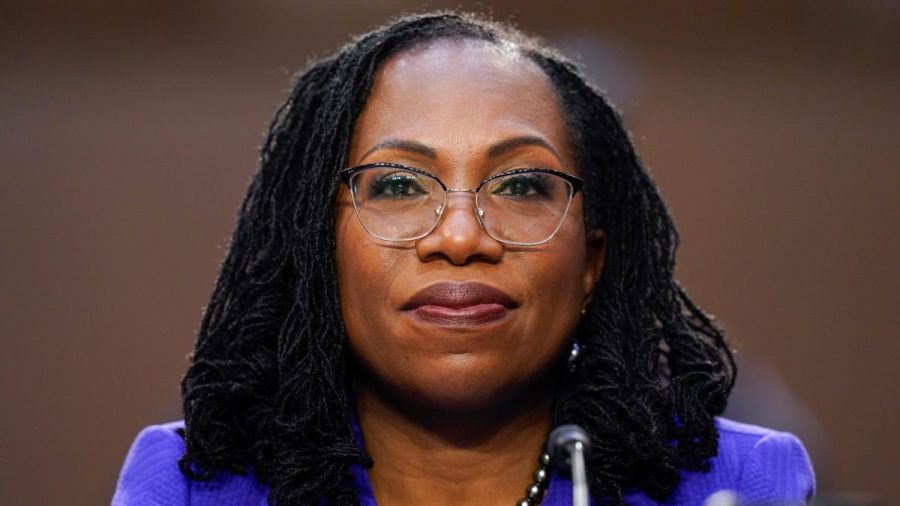Ketanji Brown Jackson Confirmed to the United States Supreme Court
April 13, 2022
On Thursday, April 7, history was made. In a 53-47 bipartisan vote, Ketanji Brown Jackson was confirmed to the United States Supreme Court, making her the first Black woman to ever sit on the Supreme Court. Jackson was born in Washington, DC and raised in Miami, Florida. She attended Harvard University, both for her undergraduate degree as well as for law school.
To be confirmed to the Supreme Court, nominees have to go through a fairly lengthy and stressful process. The first step is getting nominated by the president. Justice Jackson was nominated by President Joe Biden on February 25, 2022, making the whole process from nomination to confirmation a little over a month. After the nomination came the hearings, in which Senators questioned the nominee on her qualifications, philosophies and judgements. Justice Jackson’s hearing process took place over a few days, beginning in late March. The hearings were long, draining and at times, emotionally charged. During her hearings, Jackson discussed what being on the Supreme Court would mean to her.
“I stand on the shoulders of so many who have come before me, including Judge Constance Baker Motley, who was the first African American woman to be appointed to the federal bench,” Jackson said. “And, like Judge Motley, I have dedicated my career to ensuring that the words engraved on the front of the Supreme Court building — ‘Equal Justice Under Law’ — are a reality and not just an ideal.”
Although Jackson has been confirmed, she is not expected to be fully sworn into her duties until sometime this summer, when retiring Justice Stephen Breyer is expected to step down. Jackson will be filling the spot Breyer will leave vacant upon retiring. While several Senators gave Jackson difficult, and at times offensive, lines of questioning during her hearing, many others praised her for her bravery and what her position on the Supreme Court means for America.
“Not a single justice has been a Black woman,” Chairman Dick Durbin said of her accomplishment. “You, Judge Jackson, can be the first. It’s not easy being the first. You have to be the best and in some ways the brightest. Your presence here today and your willingness to brave this process will give inspiration to millions of women who see themselves in you.”
While many Americans are celebrating steps towards representation in our nation’s largest court, Brown has reflected on what it is like to be a woman of color in a predominantly white space. When asked what her message to young Americans would be, Jackson referred to her days at Harvard in which she often felt out of place as a black female student.
“I was really questioning: Do I belong here?” she said. “Can I make it in this environment? And I was walking through the yard in the evening and a Black woman I did not know was passing me on the sidewalk, and she looked at me, and I guess she knew how I was feeling. And she leaned over as we crossed and said ‘persevere.’”
For many students of color at the University, Ketanji Brown Jackson’s confirmation is a big moment in history.
“As a black woman, this nomination is very inspiring, especially as someone who plans to be a public defender,” sophomore Lindsay Redditt said. “Judge Jackson shows that even with obstacles around us, Black women can still rise above and become victorious.”
Ketanji Brown Jackson can serve as inspiration for women of color, not only at our University, but also nationwide.



